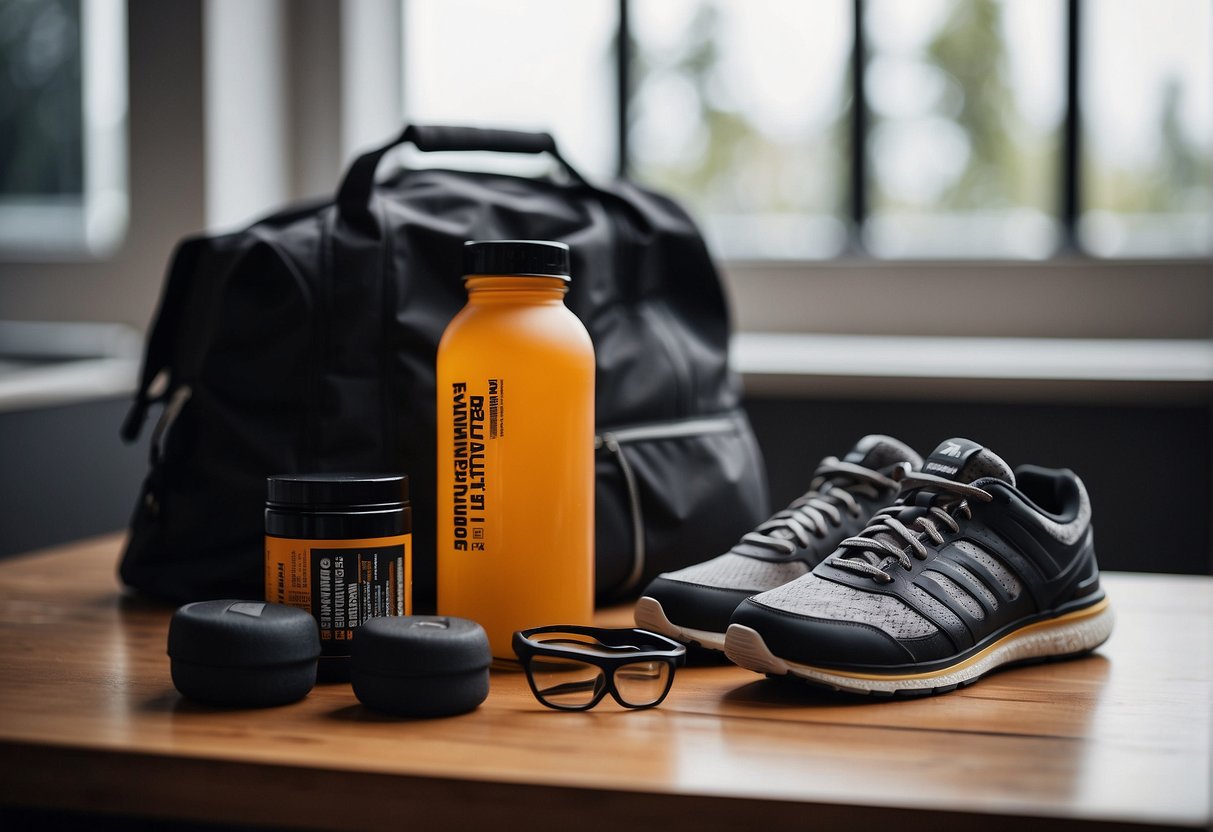📦 FREE Shipping
Can You Take Preworkout and Not Workout 2024? Experts Explain

Preworkout supplements are designed to enhance gym performance, but what happens if your plans change? “Can You Take Preworkout and Not Workout? Experts Explain” explores the effects of these energizing formulas when you’re not hitting the weights.
Can You Take Preworkout and Not Workout?
Caffeine: The powerhouse for boosting energy, caffeine is a staple in many pre-workout formulas. It can increase your alertness and delay the onset of fatigue.
Creatine: Creatine is a favorite for muscle growth and power. It produces energy during high-intensity, explosive activities like lifting and sprinting.
Beta-Alanine: This amino acid can combat muscle fatigue, allowing you to push past your normal limits.
Citrulline: Often included for its potential to improve blood flow, citrulline supports increased endurance and can help with muscle recovery.
Amino Acids: Building blocks for protein, they are crucial for muscle repair and growth. The branched-chain amino acids (BCAAs) are particularly important for muscle building.
Benefits for Exercise Performance
When you take pre-workout supplements, you’re setting the stage for multiple benefits:
- Intensity & Power: Thanks to creatine and caffeine, your workout intensity will surge, and your power output will increase.
- Endurance: Citrulline and beta-alanine team up to boost your stamina, keeping you going for longer.
- Mental Focus: Enhanced focus helps you maintain proper form and stay in tune with your body throughout your exercise.
Potential Effects When Not Exercising
Even if you’re not hitting the gym, taking pre-workout can still affect you:
- You might feel a surge of energy and heightened focus, similar to a strong cup of coffee, due to the caffeine content.
- However, consistent use without exercise might not be ideal and could lead to side effects like jitters or sleep disturbances.
Health and Safety Considerations

Safe Usage and Recommended Doses
Adhering to recommended doses is key to safely using pre-workout supplements. Various pre-workouts contain various ingredients, with caffeine content typically ranging from 150 to 400 milligrams per serving. It’s vital to start with a lower dose to gauge your body’s reaction, especially if you’re sensitive to caffeine.
Here’s what you need to keep an eye on:
- Caffeine levels: Avoid exceeding 400 milligrams daily to reduce potential health risks.
- Other stimulants: Ingredients like DMHA, eri jarensis, and nootropics are common. Know the exact quantities and research their effects.
- Manufacturer’s guidelines: Always follow the usage directions provided by the supplement’s maker.
Side Effects and Body’s Tolerance to Stimulants
Your body’s tolerance to stimulants is a deciding factor in how you’ll react to pre-workout supplements. If you’re not used to caffeine or other stimulants, you might experience:
- Jitters or Anxiety: A common reaction when your body adjusts to stimulants.
- Elevated Blood Pressure and Heart Rate: Monitor these vitals, as pre-workouts can cause significant increases.
- Headaches and Restlessness: Especially if taken in large doses or on an empty stomach.
To minimize side effects:
- Assess your tolerance: Start with half a scoop and increase gradually.
- Mind the timing: Avoid taking pre-workouts later in the day to prevent insomnia.
- Stay hydrated: This can help mitigate headaches and restlessness.
Always listen to your body and consult a healthcare provider if you encounter persistent adverse reactions.
Lifestyle and Nutritional Context

Combining with Diet and Hydration
Your diet plays a pivotal role in harnessing the effectiveness of pre-workout supplements. These supplements can enhance alertness and provide a surge of energy, like an energy drink or coffee. To optimize recovery and health, integrate a variety of nutrient-rich foods that cater to your body’s needs. Always consider:
- Carbohydrates: Fuel your energy reserves.
- Proteins: Essential for muscle repair and recovery.
- Fats: Important for hormone function and energy.
Proper hydration is just as crucial. Drinking plenty of water not only supports the body’s metabolic processes but also helps dilute the concentration of stimulants consumed, potentially reducing adverse effects.
Alternatives to Pre-Workouts and Their Impact
If you’re not working out, consider stimulant-free pre-workout options or everyday nutrition choices that naturally boost energy. These might include:
- Foods rich in Tyrosine: Supports brain neurotransmitters for alertness.
- Balanced meals: Offer sustained energy without the intensity of a pre-workout.
FAQ:
What happens if I take pre-workout and don’t workout?
If you take pre-workout and don’t workout, you may experience increased energy and focus, but without the physical activity, it could lead to restlessness or difficulty sleeping.
Can preworkout be used as an energy drink?
Pre-workout can be used as an energy boost similar to energy drinks, due to its caffeine content.
Should you take pre-workout on non workout days?
Taking pre-workout on non-workout days isn’t necessary and may lead to increased tolerance, reducing its effectiveness on workout days.
Is it bad to take pre-workout and not lift?
It’s not harmful to take pre-workout and not lift, but it’s not cost-effective and may cause unnecessary stimulation without the benefits of exercise.
If this article about the question, “Can You Take Preworkout and Not Workout?” helped you, don’t forget to leave us a comment below about what you think of the article.

